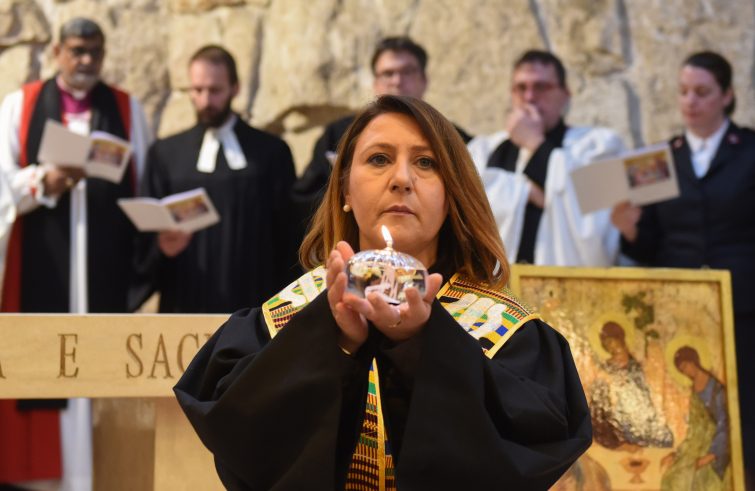
The ecumenical breath ushered in by the Council has thrust the pace of the Church forward in recent decades, permeating the Magisterium and the ministry of the latest Pontiffs, and has become a solid source of hope. Indeed,
hope is a dynamic virtue, infusing each journey with vital breath, including the most challenging hurdles.
In fact, despite its encouraging progress, the ecumenical path is not lacking in difficulties. This requires not only pastoral courage, but also dedicated theological research aimed at enhancing the heritage of doctrine, leaving room for new fruits to blossom.
Precisely because of its complexity, and possibly due to unresolved concerns, the theme of ecumenism risks remaining, if not relegated, in any case confined to scholarly thinking and to the care of clergy, while not sufficiently involving the people of God, who are instead its protagonists, sometimes unknowingly and even prophetically.
Hence the importance of the Week of Prayer for Christian Unity: a time of strong invocation to the Holy Ghost, Source of unity.
Moreover, within and through prayer, lies the awareness of the extent to which this precious unity is entrusted to each and every Christian believer, and to the commitment of his or her journey, which is not hindered by fatigue but rather rekindles new energies, as in a mysterious realm of fraternal communion.
The theme chosen for the annual Week of Prayer invites us to articulate what would seem to be a non-dynamic verb, “to abide”: Abide in my love: you will bear much fruit (cf. Jn. 15:5-9).
The COVID-19 pandemic has conferred new nuances to this verb.
We experience the difficulty of having to “abide” in the house, or the sadness of not being able “to abide” with our loved ones if they are infected, sick, dying… We can enjoy more time to “abide” in nurturing family relations or in our relationship with God in prayer…. In the Gospel of John, the verb to abide (Greek ménein) denotes not only to remain in a physical location but also refers to the dynamism of the heart, steeped in practices we experience in our daily lives and in our relationships.
To abide is the verb for union with Christ that becomes union in Christ. To abide in Him is to live in true and fruitful communion, however imperfect.
“The closer we become to the Lord Jesus, the more we will be open and ‘universal’, since we will feel responsible for others”, Pope Francis said in his homily at the International Meeting of Prayer for Peace in Rome on October 20, 2020. And responsibility requires openness to knowledge.
To abide is the verb of dialogue and listening, hence of understanding.
In ecumenical dialogue, by abiding we can deepen our understanding, discern the other person’s reasoning and thus learn more about ourselves, while patiently growing in the faith.
To abide is the verb of patience and of the Lord’s footsteps.
The patience of the farmer “who waits for the precious fruit of the earth” (cf. James 5:7), placing his trust in the change of seasons but continuing to tend the earth, at all times with different practices, carefully protecting the buds whose fruits he can glimpse, that will ripen also as a result of various paths of transformation.
To abide is the verb of change of heart and forgiveness.
“There can be no ecumenism worthy of the name without a change of heart”, the Council affirmed (Unitatis Redintegratio, 7); and Pope Francis constantly reminds us that unity is always stronger than conflict. Change of heart and forgiveness are conducive to the renewal of inner life, a prerequisite for that very renewal sought by ecumenical commitment.
Finally, to abide is the verb of hope that paves the way to the newness of God’s plan.
The dynamism of hope thrusts us out of self, towards our fellow other and towards the Almighty, it leads us to pray for the unity brought forth by Jesus, teaching us that communion is a gift that He too asks the Father. Hope thus becomes prayer, and prayer enables us to abide in the Lord and in others. Only thus, only by “abiding” in our closeness to neighbour and to God, will we manage to “walk” and welcome every newness, every fruit that the Lord will bring to maturation in our ecumenical journey.
(*) Secretary of the Bishops’ Commission for Ecumenism and Dialogue










